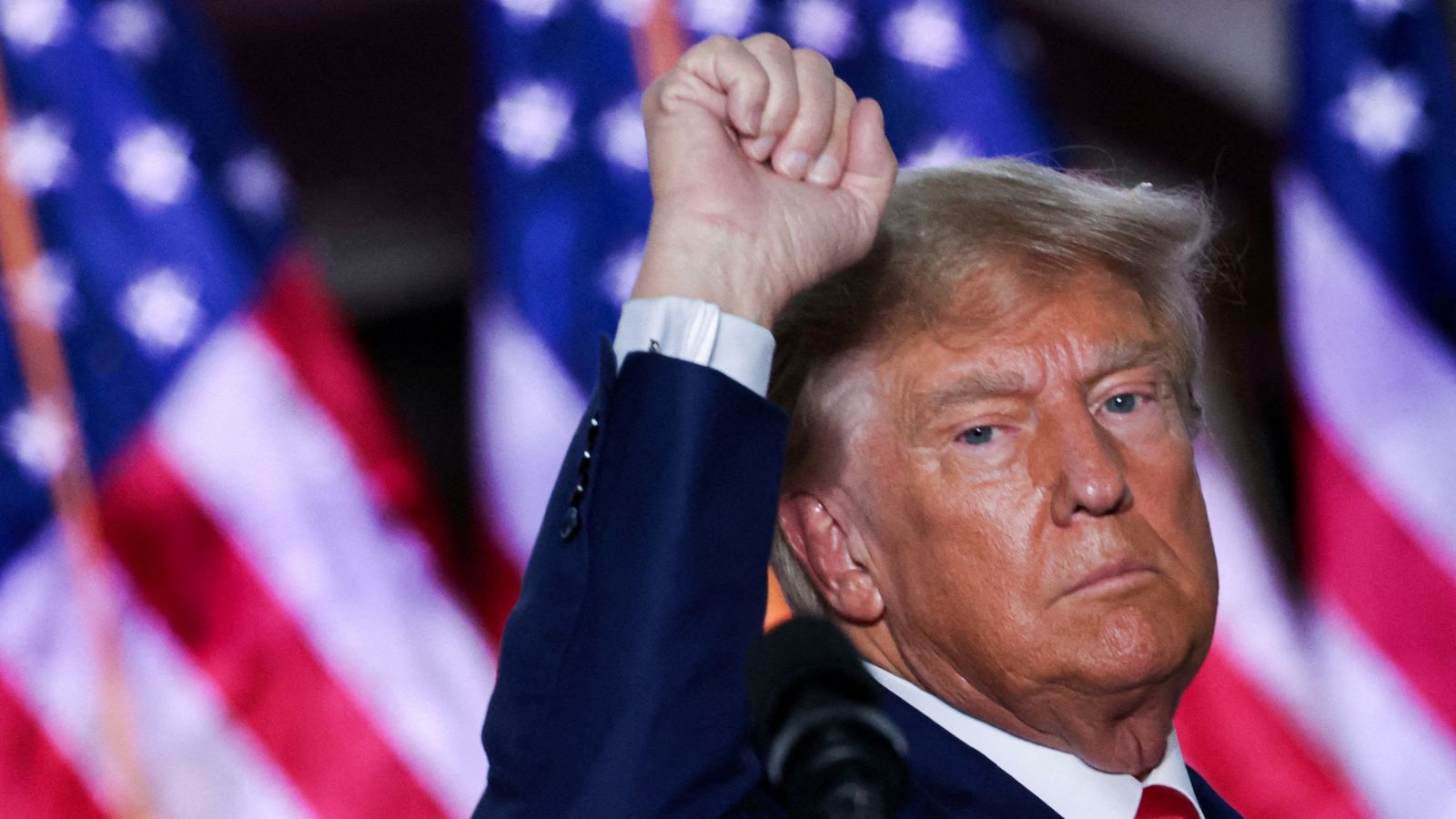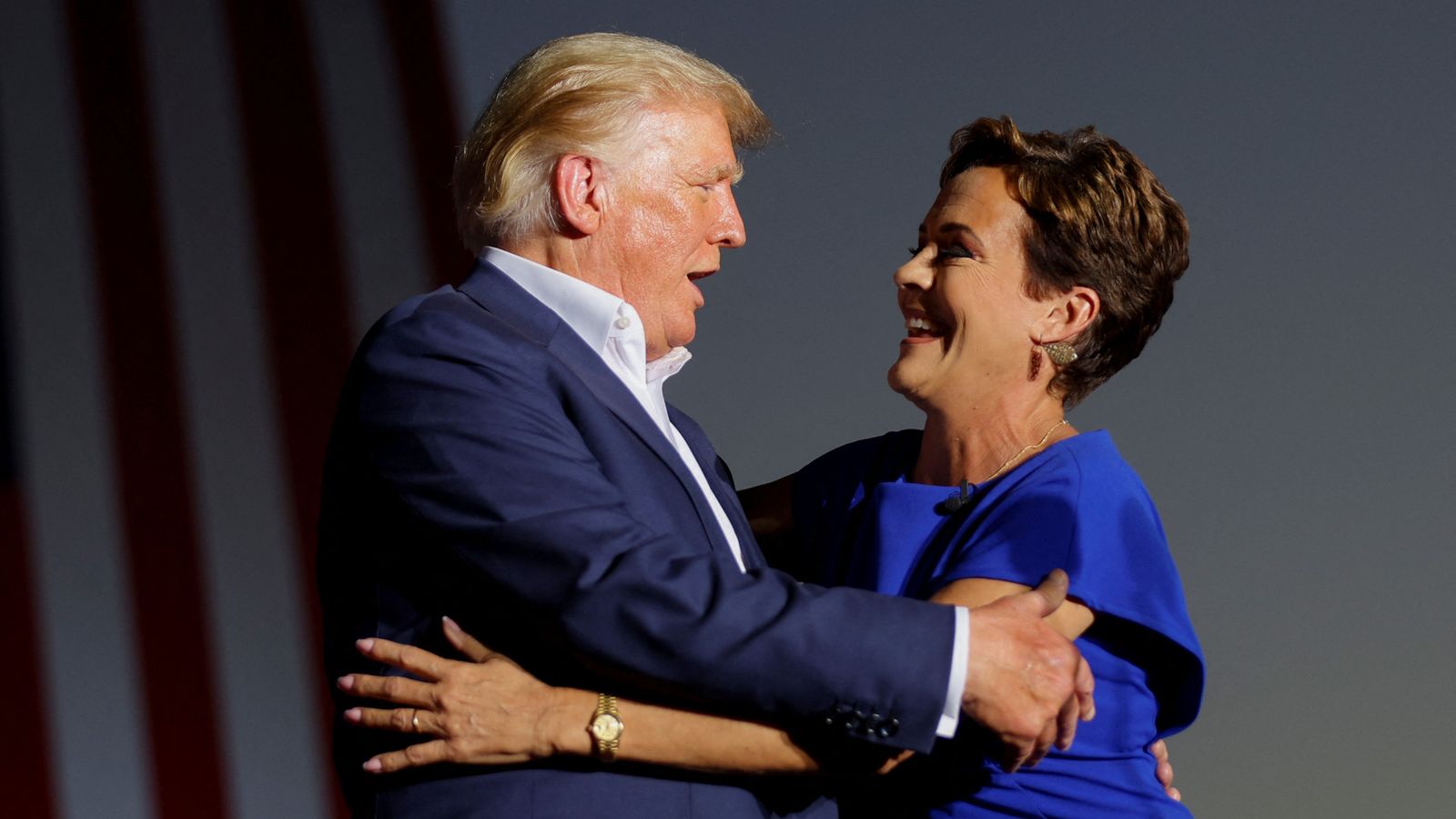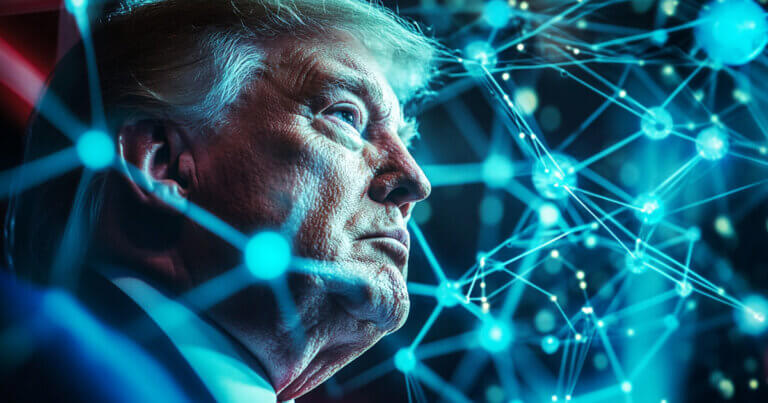Donald Trump and his lawyers have indicated how they will present the former president’s defence – both in the federal court and the court of American public opinion.
So what will his defence look like?
He will claim there has been no crime
Trump claims that he did nothing wrong and that to charge him under the espionage act is a politically motivated witch-hunt.
He says his removal of documents falls under the Presidential Records Act and that he was entitled to take them from the White House.
So what is the Presidential Records Act? Signed into law by President Jimmy Carter in 1978 it states that “responsibility for the custody and management of incumbent presidential records is with the President.”
However it also requires that: “all ‘official’ documents be returned to the National Archives upon a president’s departure.”
Mr Trump says he “had every right to hold these documents” and claimed he “hadn’t had the chance to go through the boxes… I lead a very busy life”.
Please use Chrome browser for a more accessible video player
He will try to get key prosecution evidence dismissed
A central component of the prosecution case against former President Trump is built on contemporaneous notes taken at the time of the alleged crime by Mr Trump’s then-attorney, Evan Corcoran. Usually, interactions between a client and their lawyer are protected under the attorney-client privilege.
In this case, a Washington DC judge ruled that the evidence could form part of the indictment. The judge granted a “crime fraud exception” because the prosecution lawyers showed that Mr Trump’s lawyer had been used to further a crime.
Mr Trump’s defence team will appeal this ruling with the Miami judge in pre-trial motions. If they are successful then a chunk of the prosecution’s case will be inadmissible in court.
Please use Chrome browser for a more accessible video player
Read more:
Trump indictment portrays him as a ‘great threat’ to US national defence
Florida is ‘Trump country’
He will claim he is the victim of ‘selective prosecution’
Mr Trump has repeatedly deflected to other scandals. He cites the case of President Biden’s own document scandal and Hilary Clinton’s email scandal.
It’s worth saying that, legally, those cases have nothing to do with whether or not there is evidence to support a conviction of President Trump. Furthermore, President Biden, who remains under investigation, is not accused of obstruction. However, the perception has been sown of a double standard of justice.
Ironically, President Trump is using former President Bill Clinton as part of his defence. He has referenced the Bill Clinton sock case.
When Clinton was president, historian Taylor Branch recorded interviews with him as part of an oral history of his presidency. Clinton kept the tapes in his sock drawer. Years later a non-profit organisation called Judicial Watch brought a case arguing they were presidential records and should be handed over to the national archives.
A US district judge dismissed the case. She said the law distinguished the recordings as ‘personal records’ which were different from ‘presidential records’ and that the National Archives does not have authority to designate them as presidential records.
Trump is claiming that Clinton was not prosecuted for recordings in his sock drawer so why should he be prosecuted for possessing his own presidential documents. But the judge has ruled that the Clinton sock drawer recordings were not presidential records.
A grand jury of ordinary Americans concluded that there is a case to answer against Donald Trump. Now it will be up to a federal court to judge.








